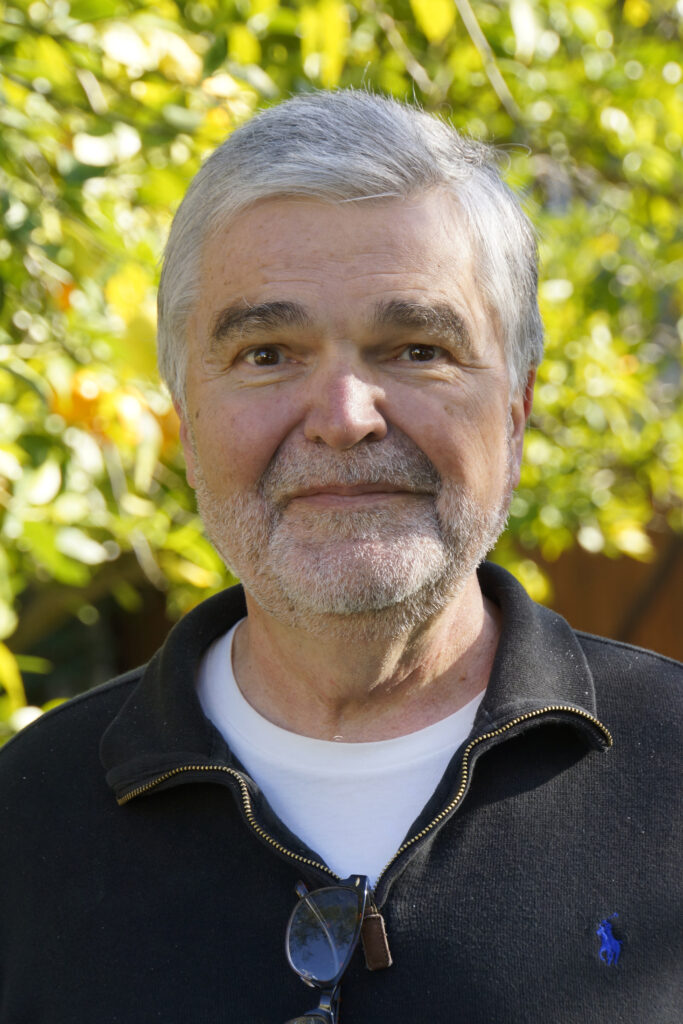
Topanga resident Emeran Mayer was born in a small town in Bavaria where his family ran a confectionary business, established in 1873. Instead of entering the family business, Emran turned to a career in medicine. Today, he’s a leading authority in gut health and the relationship between the human gut microbiome and the immune system.
Emeran brings a unique perspective to his work. He went to medical school at Ludwig Maximilian University in Munich, completed his residency training at the Vancouver General Hospital in Vancouver, Canada, before moving to Los Angeles, where he worked under the late John H. Walsh to study the role of gut brain interactions, and with James Meyer on the role of stomach emptying at the prestigious Center for Ulcer Research and Education. He completed his specialty training in Gastroenterology at UCLA.
Along the way, Emeran has found time for mountaineering and documentary filmmaking, including stays with the Yanomamis in Venezuela, and among the Asmat and Dani people in Irian Jaya, Indonesia. He has also climbed some of the highest mountains in the US, South America, and Europe. In 2015, he was an associate producer in a documentary film about a new ecological view of health and disease, In the Balance. He’s also a student of the Buddhist philosophy of interconnectedness, balance and compassion, and has a deep interest in ancient and traditional healing practices.
He brings that extensive and diverse background to the study of the gut microbiome, and his newest book, The Gut Immune Connection, explores how the relationship between the human microbiome and mental health and wellbeing.
The book mixes granular research with anecdotes from cases Emeran has treated, it also offers practical advice and even a few recipes that highlight the kind of diet Emeran recommends for optimal gut health.
“The science is complicated but the recommendations are simple,” Emeran told the Topanga New Times.
His advice is familiar: diet, exercise and sleep, but this isn’t a health fad, it’s based on extensive research. Emeran advises his patients to eat a wide variety of fresh fruits and vegetables and other unprocessed foods, exercise regularly and get enough sleep.
Emeran says that most of Topanga neighbors are unusually health conscious and already embrace a healthy lifestyle, but that isn’t the case everywhere.
“The standard American diet lacks sufficient fiber and polyphenols,” he says. It’s a pro-inflammatory diet.”
Emeran is concerned not only with the human gut microbiome but also with soil health. “Just as the microbiome plays a key role in our health, the microbial ecosystems living in the soil and closely interacting with a plant’s root system play a central role in their health,” he writes.
In addition to eating a natural, unprocessed diet, Emeran advocates fasting between food cycles. He observes an eight hour window for eating, from noon to 8 p.m., and then 16 hours of fasting. “This kind of time restriction is beneficial,” he says “It’s flexible. You can make exceptions.”
He writes, “Communication between microbes and our gut occurs much more frequently during a meal, creating profound effects on gene expression in the immune system as well as cells in the gut, liver, and brain. These findings strongly suggest that the timing of our meals can have a profound effect on the gut microbiome and our overall health.
Emeran and his wife enjoy an hour-long walk before breaking their fast with lunch instead of breakfast. He admits it wasn’t an easy change.
“We started slowly,” he writes. “Without making any changes to our largely plant-based diet, we began with two weeks of gradually increasing our daily no-eating period from twelve hours to the desired sixteen hours. Once we reached this point, we strictly kept to this daily eight-sixteen rhythm for another month. Think of it this way: you’re already (I hope) fasting for half that time while you’re asleep.”
His personal experiment resulted in weight loss and improved well being, but diet and exercise are equal parts of the equation.
Emeran stresses that nature is also an important part of health and that outdoor exercise promotes mental health as well as physical strength.. Topangans, he says, are fortunate to have hiking trails in their backyard, the key is taking time to get out and walk them. “It’s beautiful, healthy and free,” he says.
The Gut Immune Connection makes the case that making changes now, no matter how old one is, can prevent or even help to reverse some serious health issues, from hypertension to diabetes. But it’s not always easy, even for the health-conscious. Emeran points to the massive increase in chronic stress most people have faced just over the past year.
“Our system is not designed for constant stress responsiveness,” he explains. Sleep is critically important for coping with stress, but stress can make it harder to sleep.
“The brain doesn’t have a lymph system,” Emeran says. “It needs regenerative sleep for immune activation. Sleep has an anti-inflammatory effect.”
Turning off the TV, the computer, and the phone and going to bed earlier can be a literal lifesaver. And if all that stress makes sleep impossible?
“Take advantage of mindfulness-based stress reduction,” Emeran suggests. “There are apps for cognitive therapy and meditation, but there are resources right here in Topanga. Yoga classes, group meditations.”
What does all of this have to do with the gut microbiome? Research has revealed that gut microbes are critically important in the communication between the brain and the gut. Diet, sleep and exercise strengthen and nurture that miniature world of organisms that we depend on to digest our food and govern our immune system. It is increasingly evident that problems with gut health underlay numerous larger health issues.
“I want to get this message out to as many people as possible,” Emeran says. The Gut Immune Connection and The Mind Gut Connection and Emeran’s earlier book, are available in print, ebook, and audiobook formats. Learn more at http://www.emeranmayer.com




